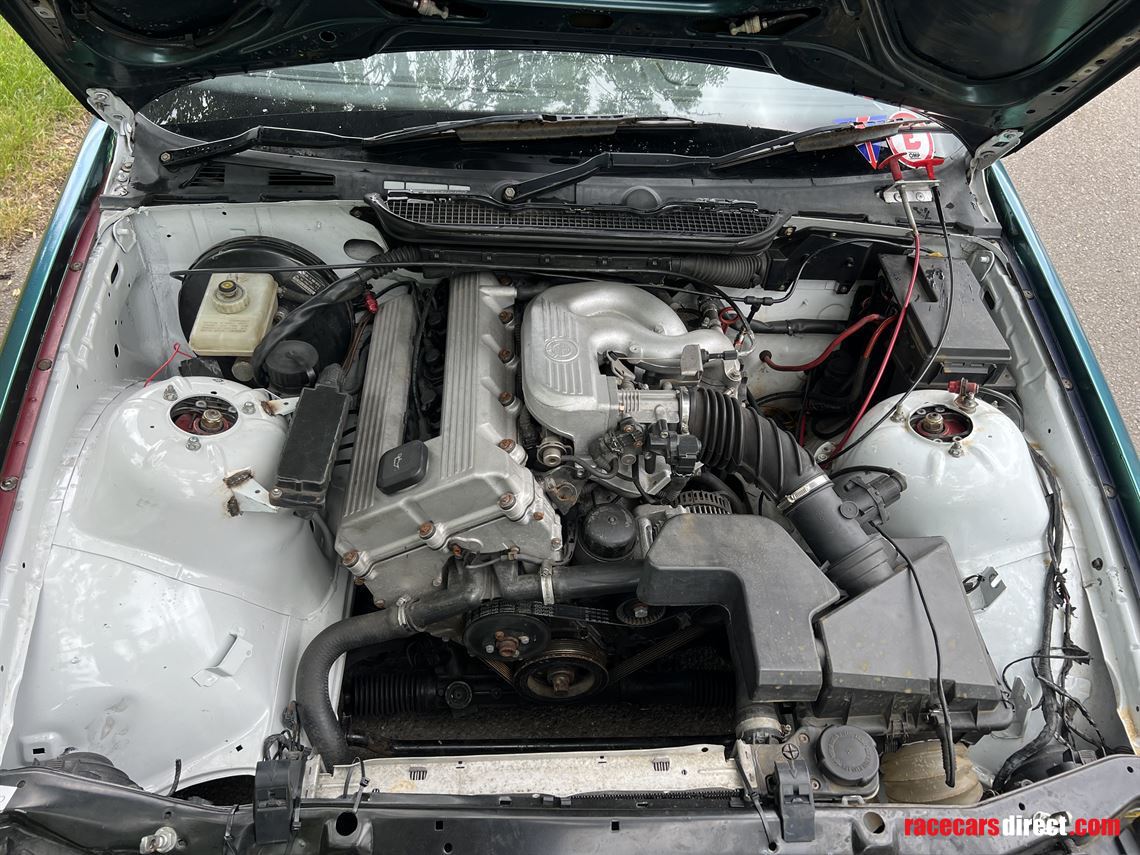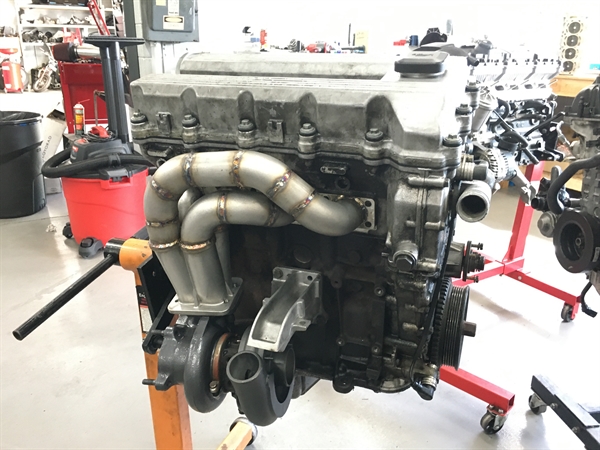The BMW 318ti: A Blend of Style, Convenience, and Performance
The BMW 318ti: A Blend of Style, Convenience, and Performance
Blog Article
Secret Functions to Look for When Purchasing an Engine for Automotive Applications
When considering the purchase of an engine for vehicle applications, a number of key attributes call for careful evaluation to make certain optimum efficiency and performance. From power and efficiency abilities to fuel adherence, effectiveness, and sturdiness to discharges criteria, each aspect plays an important role in identifying the engine's viability for specific automotive requirements.
Power and Performance
When picking an automobile engine, purchasers focus on power and efficiency to guarantee optimal driving experience and efficiency. The power result of an engine, commonly gauged in horsepower (HP) or kilowatts (kW), dictates the acceleration, full throttle, and general capacities of a car. Higher power scores normally result in quicker acceleration and far better efficiency, particularly throughout overtaking or carrying heavy loads. Performance, on the various other hand, incorporates a broader spectrum of attributes, including gas performance, emissions, integrity, and total driving dynamics. A well-performing engine not just provides power effectively but additionally runs smoothly across different speed varieties and driving problems.
Buyers usually think about the engine's torque outcome together with its power ranking. Torque, measured in pound-feet (lb-ft) or Newton-meters (Nm), mirrors the engine's rotational force, affecting the lorry's capability to tow, climb slopes, and increase from grinding halt. A balance between power and torque is crucial for achieving a responsive and versatile driving experience. Furthermore, factors such as engine crossbreed, variation, and turbocharging innovations play considerable duties in boosting both power and efficiency degrees. Ultimately, picking an engine that offers a potent combination of power and efficiency ensures a effective and gratifying driving experience. bmw 318ti.
Fuel Effectiveness
Optimizing fuel efficiency is a critical consideration for consumers when evaluating automotive engine alternatives. Modern engines with attributes like straight fuel shot, turbocharging, and variable shutoff timing can significantly improve gas effectiveness by enhancing burning procedures and reducing energy loss.

Sturdiness and Dependability
Accomplishing durable efficiency and reputable procedure is crucial for consumers examining the resilience and dependability of automobile engines. When taking into consideration an engine for vehicle applications, resilience refers to the engine's capability to endure wear, stress and anxiety, and extreme operating problems over an extended period. Dependability, on the other hand, implies that the engine can constantly perform its designated function without unforeseen failures or failures.
Customers need to search for engines created with premium products and accurate engineering to ensure durability. Elements such as crankshafts, bearings, and pistons ought to be long lasting to handle the engine's power outcome without premature wear. Furthermore, engines equipped with innovative cooling systems, reliable lubrication, and robust filtration systems often tend to display greater levels of integrity.
Routine upkeep and adherence to manufacturer recommendations are additionally crucial consider preserving an engine's resilience and dependability. By following upkeep timetables, utilizing advised fluids, and addressing any type of issues promptly, customers can optimize the life expectancy and performance of their auto engines. Ultimately, focusing on toughness and reliability in engine selection can cause an extra enjoyable possession experience with less unanticipated disruptions.
Discharges Conformity
Ensuring compliance with emissions policies is an essential aspect of examining auto engines for ecologically aware consumers. With raising worries about air high quality and ecological effect, rigorous emissions criteria have actually been placed in location internationally to decrease damaging pollutants released into the atmosphere. When buying an engine for automobile applications, it is important to consider its emissions conformity to reduce the carbon footprint and adhere to legal requirements.
Modern engines are equipped with innovative discharge control technologies such as catalytic converters, exhaust gas recirculation (EGR) see here now systems, and selective catalytic reduction (SCR) to decrease hazardous exhaust gases like nitrogen oxides (NOx), carbon monoxide (CARBON MONOXIDE), and hydrocarbons (HC) These systems play an essential role in making sure that the engine meets the defined discharges requirements and operates within permissible limitations.

Cost-effectiveness
When considering vehicle engine acquisitions, reviewing cost-effectiveness is extremely important for consumers looking for both efficiency and value. Cost-effectiveness in engine procurement entails greater than simply the initial acquisition price. It includes the general costs connected to upkeep, fuel consumption, and possible repairs over the engine's lifespan. Deciding for an engine that offers a balance in between upfront prices and long-lasting financial savings can result in considerable benefits for the consumer.
One key aspect of cost-effectiveness is gas effectiveness. Engines that are developed to make best use of gas economic climate can result in considerable financial savings in time, especially for people that drive regularly or over cross countries. In addition, thinking about the availability and cost of spare components and servicing can add to the total cost-effectiveness of an engine. Guaranteeing that repair and maintenance are affordable and available can prevent unanticipated financial burdens down the line.

Verdict
To conclude, when acquiring an engine for auto applications, it is essential to think about vital features such as power and performance, fuel dependability, toughness and effectiveness, discharges conformity, and cost-effectiveness. These aspects are crucial in making certain that the engine fulfills the needs of the automobile and runs effectively in various driving conditions - bmw 318ti. Making an educated choice based upon these requirements will eventually result in a successful and efficient vehicle engine acquisition
From power and efficiency abilities to fuel toughness, adherence, and effectiveness to emissions criteria, each element plays an important role in determining the engine's viability for particular automotive requirements. Engines developed to run on different fuels such as electric power, crossbreed systems, or biofuels can offer better fuel economic situation and reduced exhausts contrasted to traditional fuel or diesel engines. Consumers need to thoroughly take into consideration the fuel performance scores and modern technologies integrated find out here now right into automobile engines to make enlightened acquiring decisions that straighten with their concerns for price savings and sustainability.
When taking into consideration an engine for automobile applications, longevity refers to the engine's ability to hold up against wear, stress, and extreme operating problems over an extended duration.In verdict, when purchasing an engine for vehicle applications, it is important to take into consideration key functions such as power and efficiency, gas resilience, effectiveness and integrity, exhausts conformity, and cost-effectiveness.
Report this page